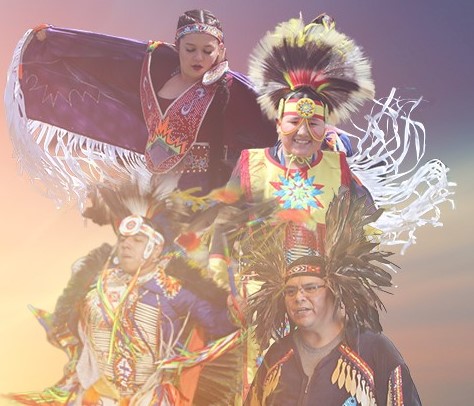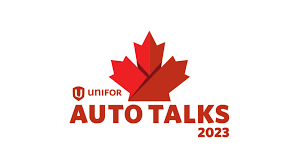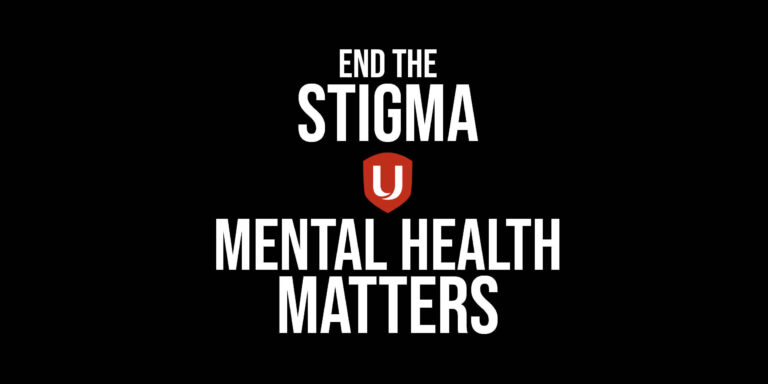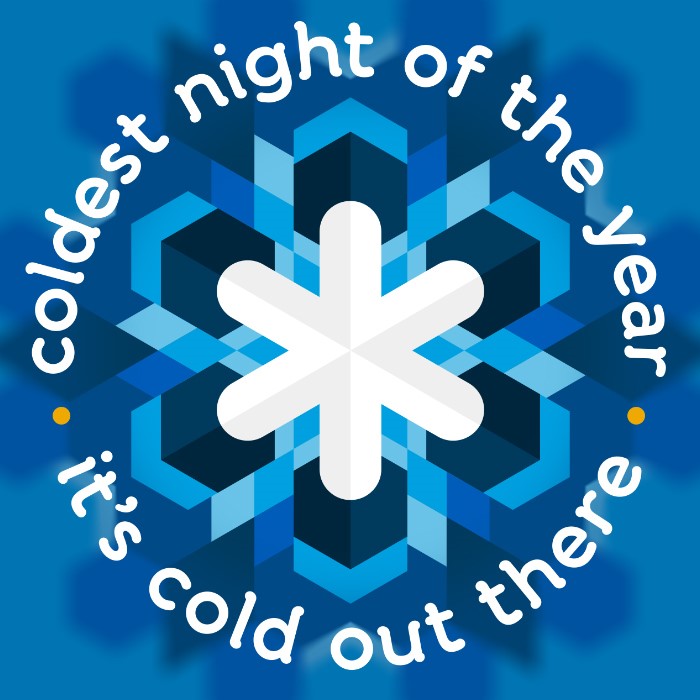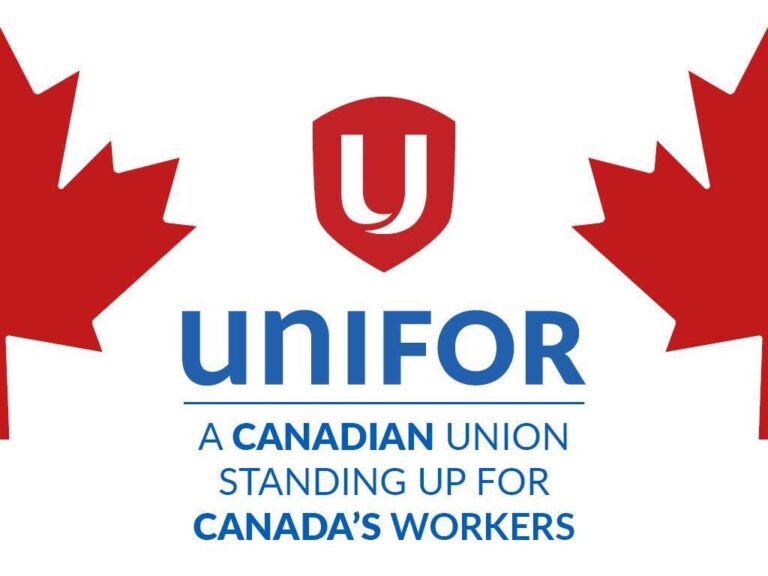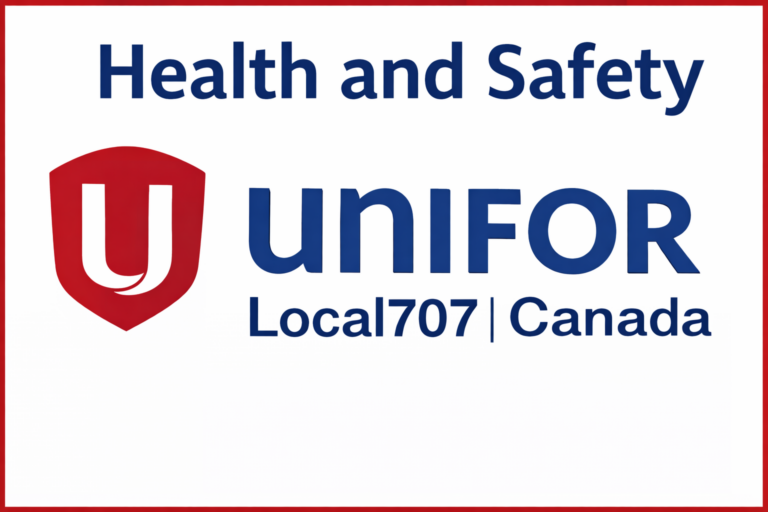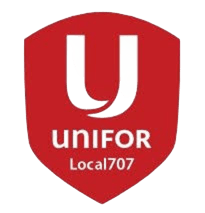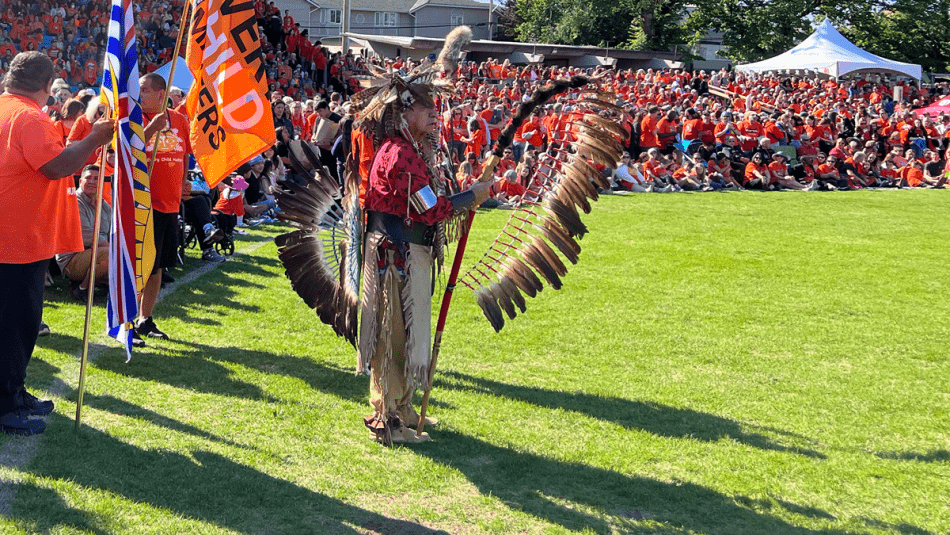
June 21 is National Indigenous Peoples’ Day, a day to celebrate in the enduring culture and achievements of Indigenous peoples.
Earlier this month Unifor partnered with the Aboriginal Peoples’ Television Network to sponsor Indigenous Day Live on June 17, a cultural and artistic show with the theme “Celebrating Our Youth.” The event celebrated Indigenous youth and their important contribution to communities and their role as future leaders.
Unifor is guided by the work undertaken by the Truth and Reconciliation Commission. The Commission’s 94 calls to action are a historic starting point for the federal government to begin to redress and recognize the harm done by colonialism and take meaningful action.
Beyond our campaign for government action, Unifor also takes seriously the responsibility we have to participate in meaningful acts of reconciliation.
This month, Unifor members are encouraged to reflect on their territorial acknowledgement practices and relationships with local Indigenous communities and organizations.
Many unions, including ours, have had a long tradition of stating a territorial acknowledgement at the start of events, demonstrations and meetings where members are gathered.
Territorial acknowledgements are an act of respect for the history of the land and the peoples who occupied it before you who, more often than not, were displaced with acts of violence. It is thanks, gratitude, and an acknowledgment of the relationship between First Peoples and the land that continues to the present day. It is a demonstration that you have thought about what colonialism means for your union’s work and the very event space in which you’re located.
Territorial acknowledgements are not mere recitals of a dated script for which you had no part in preparing. Feel free to take some ownership over the text and use your own words. Territorial acknowledgements are not meaningful if they are done in isolation of other work for reconciliation. With them you’ve done a minimal amount of work to recognize historical injustice, but they must be matched with action.
For many local unions, the territorial acknowledgement is already a regular practice. For others, this will be a new project that will require outreach, education, and new operating policy for events.
Starting new practices can be challenging, but that’s the point. Small acts of reconciliation take time and work. It will also take work to seek out next steps.
While there are a myriad of online resources linked below to help with crafting a respectful and informed territorial acknowledgement, you are encouraged to connect with the Indigenous nation(s) or friendship centres in your area to complete this project. Knowing the history of the land and first peoples is key for a sincere land acknowledgement.
Please find out what is happening in your community for June 21 and share in the celebratory spirit of the day.
In the year ahead, Unifor re-commits to the national campaign for the adoption of the recommendations of the Truth and Reconciliation Commission and other efforts to recognize the rights of First Nations, Inuit, and Métis people.
An invitation from Samia Hashi Ontario Regional Director & Gina Smoke Indigenous Relations
Greetings,
We are thrilled to extend an invitation for a unique opportunity to learn and to honour the accomplishments and culture of Indigenous people at the National Indigenous Peoples Day Celebration at the Woodland Cultural Centre in Brantford, Ontario. This special event will take place on June 23rd from 11:00 AM to 4:00 PM at the Woodland Cultural Centre, located on the grounds of the former Mohawk Institute (residential school).
The celebration will feature live cultural performances, Indigenous foods, an Indigenous market, and hands on workshops for all ages. You can explore the museum and galleries with the Centre’s Knowledge Guides, who will be provide tours and insights.
Unifor’s Ontario Regional Council BIWOC Committee will be hosting a refreshment tent throughout the day.
Any costs associated with attendance will be borne by individuals or locals choosing to attend. While there is no cost to the event, donations are strongly encouraged. As there is no ATM on site, participants are encouraged to bring funds with them for any purchases they might wish to make.
We are excited to encourage your involvement as we continue to pursue a path to truth and reconciliation. This event promises to be an enriching experience for all attendees, and we look forward to celebrating with you.
In solidarity,
Samia Hashi Gina Smoke
Ontario Regional Director Indigenous Relations
Resources:
- Native Land Digital: Search territory, languages, and treaties: https://native-land.ca/
- Native Land Digital: About Territorial Acknowledgement https://native-land.ca/resources/territory-acknowledgement/
- Whose Land: identifying Indigenous Nations, territories, and Indigenous communities across Canada https://www.whose.land/en/
- How to do a territorial acknowledgment: https://www.ualberta.ca/folio/2019/01/how-to-do-a-territorial-acknowledgment.html
- CBC Original Voices: https://www.cbc.ca/newsinteractives/original-voices/
- Pronunciation Guide to First Nations in British Columbia https://www.first-nations.info/pronunciation-guide-nations-british-columbia.html
- Canadian Association of University Teachers’ Guide to Acknowledging First Peoples & Traditional Territory https://www.caut.ca/content/guide-acknowledging-first-peoples-traditional-territory
- CBC: What’s wrong with land acknowledgments, and how to make them better https://www.cbc.ca/news/indigenous/land-acknowledgments-what-s-wrong-with-them-1.6217931

